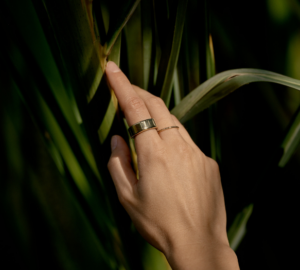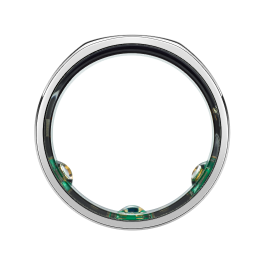Menopause is a challenging time for women, partially because it’s something many women don’t know much about. In fact, according to research by Clue, 70% of women weren’t even sure what perimenopause was.*
Peri and menopausal women are a historically underserved portion of the population when it comes to health research. That’s why, as part of Oura’s ongoing commitment to women’s health research, we are thrilled to announce that we are joining forces with Clue and the University of California Berkeley to conduct menopause research using Oura.
The Impact of Misunderstanding Menopause
According to research, 10% of women will stop working earlier than necessary due to their unmanaged symptoms of menopause. Despite the significant impact of menopause on women’s health, a concerning trend persists in research: many studies exclude menopausal women, leading to a gap in our understanding of this pivotal life stage. The few studies that do look at menopause often fail to comprehensively explore the physiological changes associated with this transition.
When Clue asked more than 26,000 of their community members what they knew about menopause, the responses were astounding:
- Less than half of the participants over the age of 51 had heard about perimenopause from a healthcare provider.
- Nearly a third of participants weren’t sure how long perimenopause can last for.
- Almost 50% didn’t know that it’s still possible to get pregnant during perimenopause.
Women’s bodies go through many changes as they phase out of the menstruating years. For instance, we see an overwhelming increase in Oura members over 40 tagging symptoms associated with perimenopause, including insomnia, night sweats, hot flashes, anger, and migraines.
The sudden influx of new physiological and mental symptoms can be scary and overwhelming for women who do not currently have access to sufficient information and resources to help guide them through this phase. This can lead to self-doubt and the avoidance of necessary medical care.
READ MORE: How Does Menopause Affect Sleep?
Using Wearable Technology to Advance Understanding of Menopause
Using Oura Ring, researchers can monitor the physiological fluctuations of perimenopausal and menopausal women. Oura will look at participants’ biometric data, including heart rate, skin temperature, heart rate variability, and sleep changes.
The study will use historical cycle data (cycle length and variability), a survey, Clue symptom tracking, and Oura data (sleep, stress, HRV, etc.) to help quantify when someone is entering perimenopause, and, if relevant, how far they are into their journey.
The aim of the study is to better understand and predict the changes women go through in later life, and provide them with resources, tools, and guidance so they feel supported through this transition.
How to Participate in the Study
To participate, you need an Oura Ring and Clue Plus:
- If you have an Oura Ring and need Clue Plus: Enjoy 3 months of Clue Plus on us and gain eligibility to participate in our research study. Clue Plus provides detailed cycle analyses and personalized health modules for your unique goals and life stages. To redeem, go to the Clue sign-in page, create a Clue account or sign in to an existing one, and enter the code CLU-3MO-SUB once signed in.
- If you have Clue Plus and need an Oura Ring: Interested in learning more about your cycle and how it influences your biometrics? Click here to learn more and receive an exclusive discount to get you started.
Once you have both, pair your Oura Ring with Clue and tap “opt-in” for research and watch for upcoming surveys.
Who are we recruiting?
Oura members who use Clue Plus are eligible for the study if they meet the following criteria:
- Women currently in perimenopause
- Women 18+ who are not currently in perimenopause (to form the control group)
Meeting these criteria doesn’t guarantee your involvement in the study. However, it does mean you are eligible. Note that recruitment for this study will happen at a later date.
*Based on a survey Clue conducted with more than 26,000 participants of the Clue Community
RELATED: UCSF and Oura Launch Study to Learn More About Irregular Menstrual Cycles and PCOS





